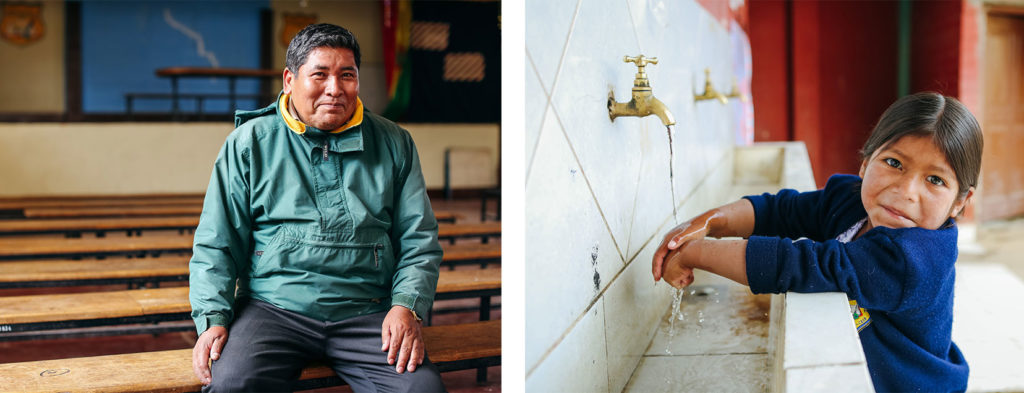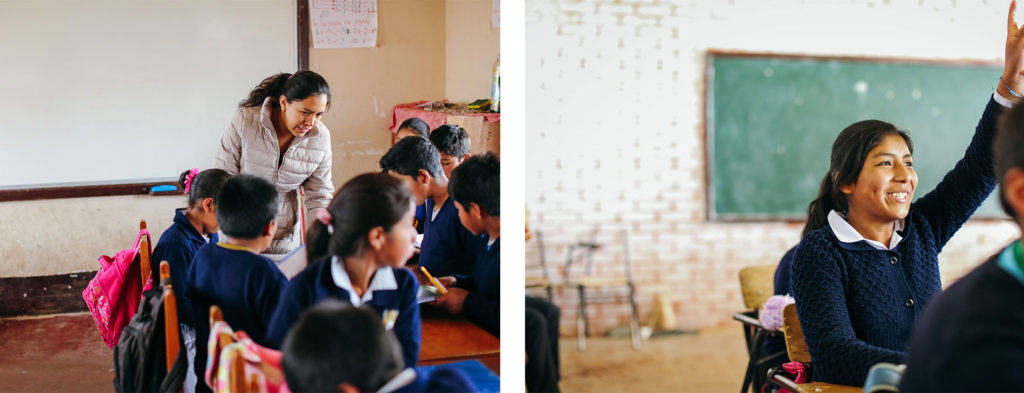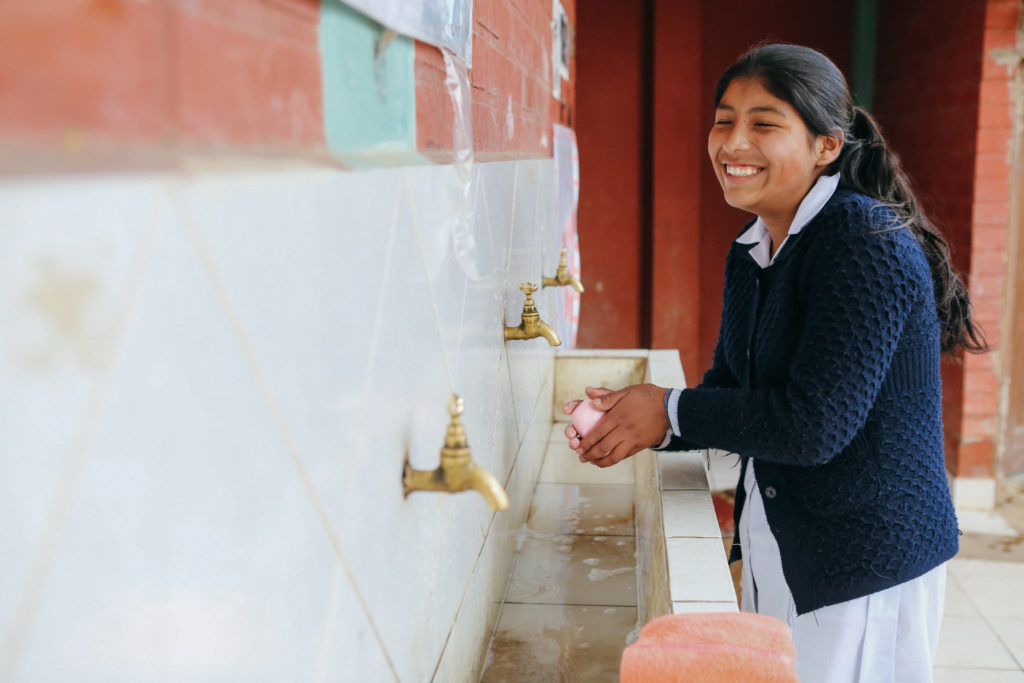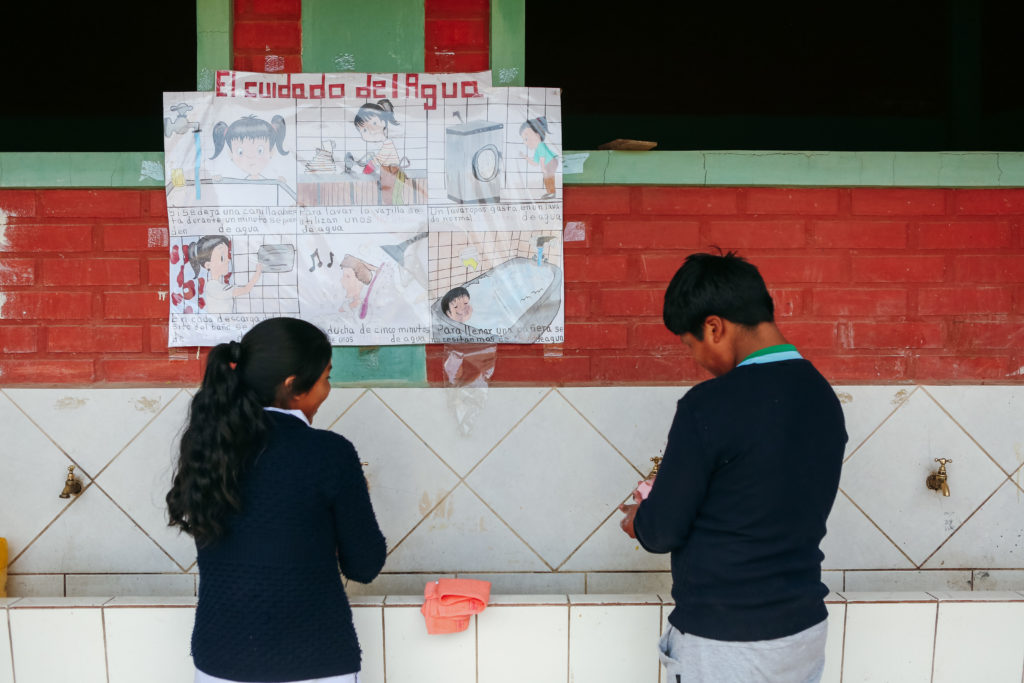En lo alto de las montañas de Bolivia, una escuela ha logrado grandes cambios en materia de agua, higiene y saneamiento.
"Antes, no teníamos letrinas conectadas al agua en la escuela", dice Edmundo Chura, quien lleva 15 años enseñando en la escuela. "Ahora, el agua es de mejor calidad y los baños están conectados al alcantarillado".
La escuela está ubicada en el distrito de Tiraque, en una región rural y montañosa de Bolivia. Hay más de 800 estudiantes en la escuela y ahora todos tienen acceso a agua y saneamiento.
Edmundo ha vivido en esta comunidad por más de 15 años y sabe que crear un cambio a largo plazo tiene que comenzar con los niños.

“Tenemos la esperanza de que si logramos cambiar el comportamiento de los niños en torno al agua y el saneamiento, ellos cambiarán a sus familias y luego cambiará toda la comunidad”, explica Edmundo.
Además de la falta anterior de servicios de agua potable y saneamiento, los profesores también estaban preocupados por la mala higiene de los estudiantes.
"Cuando empecé a dar clases aquí hace dos años, noté que los estudiantes no se mantenían limpios", dice Jhenny Balderrama Rodríguez, otra maestra de la escuela. "Muchos solo se duchaban una vez a la semana y no se cepillaban los dientes. ¡Estaban sucios todo el tiempo!"

Con el apoyo de Water For People y socios locales, la escuela comenzó a implementar educación sobre higiene. Una vez por semana, los estudiantes comenzaron a ver videos sobre temas como el lavado de manos, el cepillado de dientes, el cuidado del medio ambiente y el uso seguro del agua. Jhenny comentó que la higiene de los estudiantes ha mejorado considerablemente.
Los estudiantes de la escuela están entusiasmados con los cambios que están ocurriendo.
"¡Ya hay baños en la escuela!", dice Gisela, de 14 años. "También pusieron carteles sobre el cuidado del agua, y en el baño de niñas hay recursos para enseñarnos a usar productos de higiene menstrual".

Julie dice que las niñas de la escuela han comenzado a sentirse mucho más cómodas con la menstruación y sus compañeros de clase comparten su opinión.
"Las niñas vienen a la escuela con la regla", dice Julie, de 13 años. "Se sienten más cómodas con la regla, ya que los profesores nos han dicho que es natural y que no tenemos por qué avergonzarnos".
Poco a poco, maestros como Jhenny y Edmundo están empoderando a los estudiantes de Tiraque. Estos estudiantes —Gisela, Julie y cientos más— ya están cambiando el futuro del agua, el saneamiento y la higiene para sus familias y comunidades.

